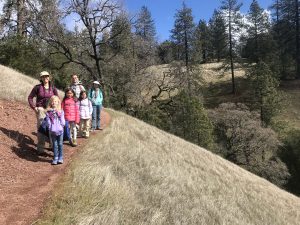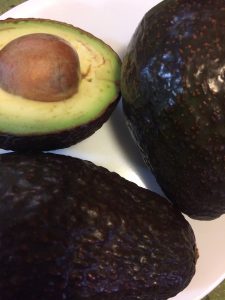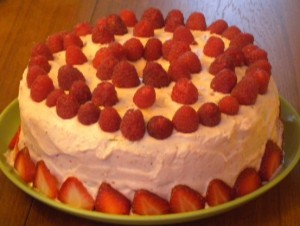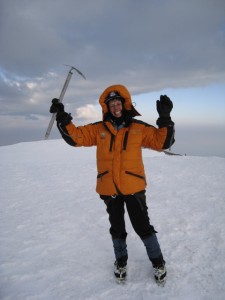Getting to Henry Coe State Park is not for the faint — or lazy — of heart. Seven miles of windy road carry us deep into the Diablo Range, into mountains whose ruggedness baffled and challenged even experienced explorers like the 1776 Anza Expedition. While the land had been impacted by the homesteaders and ranchers who followed Anza, Henry Coe is wilder and more remote than anything you might expect so near the Bay Area. I rarely drive into the park without catching a glimpse of wildlife: deer grazing in a meadow, turkey courting, quail flying away at the sight of the car, or the occasional tarantula crossing the road. As the valley below disappears behind the curves in the road, I release a sigh and step forward on a footpath from which you can see only nature; no cars, no roads, no homes.
The Loma Prieta Family Explorers began offering hikes for families with children ages six to twelve in November. Our first trip led us to Huddart Park where we learned about the redwoods and counted banana slugs. We loved the redwoods so much that we decided to go back and explore Sam MacDonald Park, where we beat our banana slug record, hugged first-growth redwoods, and had lunch in view of the ocean. Since wildflower season is beginning, our next hike led us to Russian Ridge, where we admired three-hundred-year-old Canyon Live Oaks, a golden coyote, and 360-degree views from the ocean in the west to the bay in the east, with Mount Tam and Mount Diablo dominating the skyline. Now here we are, tackling what can only be described as our toughest hike yet, at Henry Coe.
The young crowd led the way, climbing giddily up the hill on Monument Trail. I am always amazed by the details which children see long before us adults. Called back by hollers, I am shown a patch of snow framed by the roots of a bay tree and different types of delicate mosses and lichen. I inform the kids that though we begin with an uphill, they will be tired of the downhill before we are done, but I am utterly wrong. The children gallop down the sloping trail with the same enthusiasm and geniality with which they tackled the steep hill. The parents and I jog after them, enjoying Indian warriors and shooting stars along the way and stopping to appreciate the curious trunks of big-leaf manzanita.
Just before arriving at our picnic spot, we pause for the climbing tree. This tree had grown strange bumpy burls around its trunk, tempting us with its climbability. The kids attempt it and only make it a few bumps up, but our solitary dad, unwilling to give up, climbs with agility, using the burls as a step-ladder. He peers at us from the top, calling, “Now how do I get down?” His success encourages the kids to try again, and only the promise of a picnic at the campground drags them away.
Frog lake proves a wonderful attraction, but we’ve sat too long at lunch and we’re cold. After searching for frogs and discovering one toad, we turn to follow the trail back. We hop over Coyote Creek. Small blue butterflies flutter over yet-to-flower blue-eyed grass. Buttercups and shooting stars sprinkled with dew dot the hillside. We see one cold ladybug and tiny waterfalls, swollen into existence by the rain. Manzanitas and gooseberries grow slowly ripening berries, too few and young to weigh down their branches. We’re full of good cheer, telling tales and jokes, discovering giant mushrooms growing on tall trees. A view opens before us, and we realize our hike is almost over. Just a little bit more uphill, another tale or two, some complaints from the youngest member of our crew, and a last glimpse of the trail which carried us high up into the hills many hours ago.
It is hard to say goodbye. We walk to the barn to take a peek at the stable and the blacksmith shop. We imagine how hot it would have been in there when the blacksmith worked. We answer a riddle: how much money did the state pay for the park in 1958? Guessing anywhere between a dollar and a thousand, the answer, ten dollars, only takes us slightly by surprise. Finally, we all disperse to our homes, driving down the same windy road, this time watching as the road leads us, switchback by switchback, back to the human hub below.
The Loma Prieta Family Explorers offers monthly hikes for children ages six to twelve. Please check our calendar for more information. Short Toddler Explorers discovery walks are offered on Fridays and include a walk, story time, and an art project. Please join us for hikes and contact us if you would like to become a leader with the Family Explorers.









